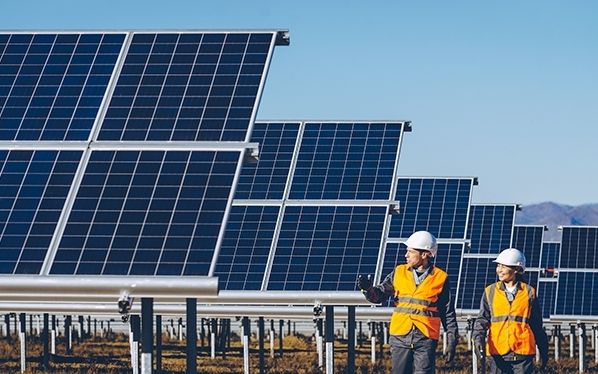Solar Cables - Cable Testing for Critical Operations & Performance in Harsh Environments.
Solar energy continues to play a leading role in a sustainable low carbon future. The growth of solar energy has been phenomenal, with the International Energy Agency (IEA) reporting growth of solar photovoltaic (PV) electricity production from 4TWh in 2005 to 570TWh in 2018, all from an installed capacity of almost 500GW. This activity has, to date, been driven by China, Europe, India, and the USA but increasingly solar power finds supporters in the far-flung corners of the world.
Solar Cables & Special Tests
One of the important components used in Solar Projects is are solar photovoltaic (PV) Cables. With thousands of kilometres of lengths installed in projects connecting all solar PV panels together, these cables are required to perform under extreme conditions through exposure to the environment, such as harsh UV exposure through sunlight and high winds. Taking this into account the reliability and robustness of cables is critical to the whole renewable system performance and to maximize energy production outputs.
To make solar cables compatible with all these conditions, special tests are designed to check on cable performance as follows:
- Thermal Endurance Test:
- Damp Heat Test:
- UV & Weathering Test:
- Ozone Test:
- There are other special tests like ‘Dynamic Penetration Test, Long term resistance to DC, Surface Resistance of sheaths, Halogen Assessment, Smoke Emission test, etc.
It is an accelerated ageing test to assess the thermal capabilities of electrical insulation and sheath. It is a simulated long term assessment to provide an adequate understanding of insulation lifetime performance in extreme operating conditions.
It is an accelerated environmental ageing test to withstand long-term exposure to high temperature and penetration of humidity.
This test checks on sheathing material performance in high-pressure UV chambers on a rotating platform with UV light & water. Compatible resistant material should pass without discolouring & cracks.
A test to check on material resistant to ozone degradation without any cracks.

The Role Of Testing in the Solar Market
Solar energy continues to play a leading role in creating a sustainable low carbon future. Cable connections perform a critical function in ensuring that power generated by assets is adequately connected to the grid in a reliable and consistent manner. Cable systems should always be rigorously tested and evaluated to validate that they are suitable for use in the installed environment and will deliver the intended performance criteria defined in the standards.
The lifetime of most cable designs is a minimum of 30 years, so, for long-term performance & sustainability in solar projects, solar cable raw material fingerprinting is a must.
There are not solid regulations in the market for solar cables testing, most cables undergo a few of the above-mentioned special tests initially and are not monitored for the rest of certification cycle.
As the experts in cable testing, for over 50 years BASEC as one of the leading testing, inspection and certification solutions bodies has been supporting the worldwide cable industry, across all major product types and market segments, we value the importance of cable testing and the benefit it provides for the environment
The above-mentioned tests should be considered as a minimum requirement for long-term benefits, and to minimise performance risk. As solar projects are still not as widespread as other forms of energy sources projects, cable testing will mitigate risk, cut costs, and help reduce environmental risks.
BASEC Schemes
There are two international design standards for Solar PV Cables – BS EN 50618 and IEC 62930. Both standards have similar requirements with IEC having some additional cable range/scope & testing.
BASEC offers dual product approval (product certification) for these solar cable standards, in BASEC PCR scheme, all special tests are performed in initial audits as well as periodically in routine/surveillance testing to continuous monitoring of cable performance for each produced cable lot from factories.
Raw material fingerprinting with TGA/FTIR analysis is done to check on consistent material quality throughout the certification cycle. BASEC performs solar cable testing & test sample preparation in its laboratory for independent third-party verification against the practice of doing it at factories.
Download our Solar PV Cable testing guide to learn more about our cable testing and certification process.

